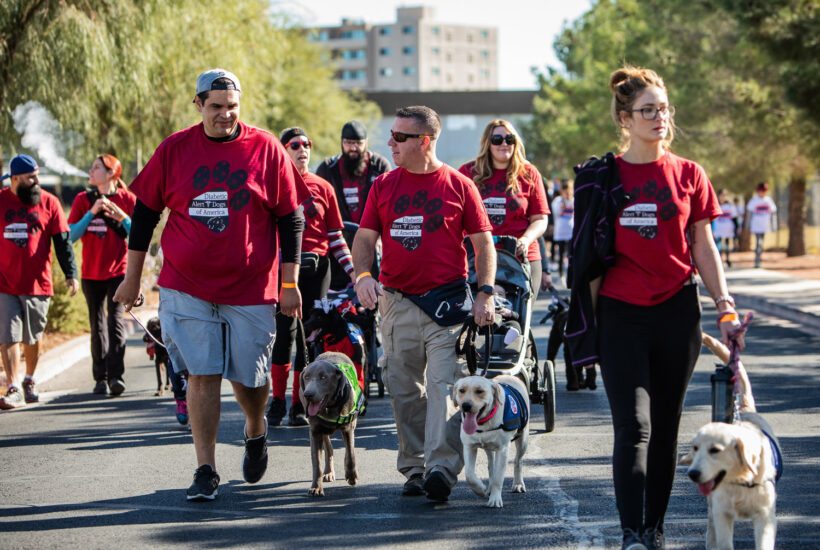It’s a few minutes before services on a Sunday morning at Bethany United Methodist Church in West Jefferson, N.C. The handbell choir warms up and an acolyte lights candles.
Church member Peggy Lynn Gibson walks in with her dog, a stout, cream-colored golden retriever named Rocky. The congregants greet Rocky like an old friend.
“How are you? You’re a sweetheart,” one man says to the dog. “And so are you,” the man tells Gibson.
Pastor Dan Money welcomes the congregation as Rocky, an honorary church member, settles in at Gibson’s feet in a pew near the back.
“We love Rocky, right? And we love Peggy,” Money says from the pulpit on the day NPR visited.
Gibson, a 67-year-old retired nurse, is one of more than a million Americans with Type 1 diabetes, a difficult-to-manage autoimmune disease. People with the disease face a constant struggle to control the amount of sugar in their bloodstream. If it gets too low, it can lead to seizures, loss of consciousness, or death.
And Rocky was there to help. He’s a diabetic alert dog specially trained to smell dangerous changes in someone’s blood sugar and alert them with a paw or a nudge before it becomes a medical emergency, and he was a gift from the church community. A chili lunch, a silent auction, even a concert by local musicians all helped with his $15,000 price tag.

